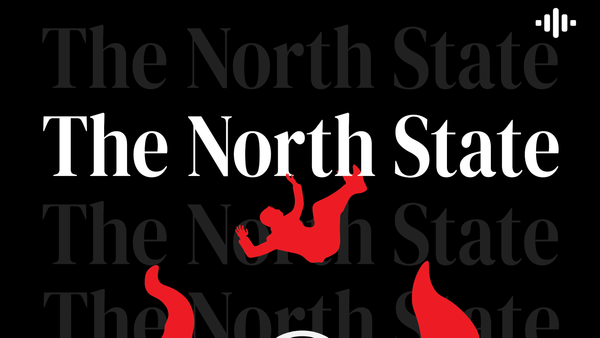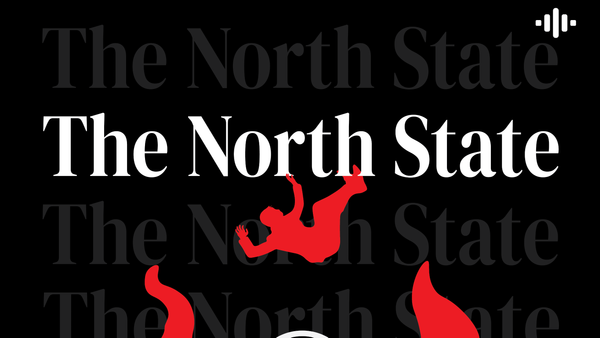"Cops Want Money" Is Not News
Conveying what a policing report says is not news, even if you reach out to additional sources to uncritically echo its conclusions

The RCMP has been making a lot of headlines lately. Most of this stemmed from a report about the issues Canada will face in the future, and the response the country's national police force will have to mount. Originally reported by CBC News, it was later picked up by the National Post and The Tyee.
More recently, however, CBC News published another article on a different report that front-loaded the RCMP's waning ability to "defend national security."
But beyond the headline, its journalistic purpose appears to be lacking. The article mostly serves as an argument for the national policing agency to have more money. This is not news. This is copaganda.
Reporting the Report
In the front half of the piece, stark and frightening language is used to highlight the dire situation. Specifically, a passage in the report, prepared by the external Management Advisory Board that advises the RCMP, referring to what is deemed a "critical juncture" is quoted twice in the first three paragraphs.
Shortly after, the CBC News article quotes a political science professor at Royal Military College who said the report conveys "a real call for political leadership."
The first mention of financial need comes 11 paragraphs in. It refers to "budget and personnel shortfalls" that the report says has hindered the RCMP's operational capacity. This becomes quickly sidestepped, however, as the article then goes on to a section titled "Canada's credibility on the global stage at risk."
It's at this point that the reader should pause and recall some of the Mounties' most public debacles in recent years and whether they contribute to these issues of both the RCMP's financial troubles and Canada's credibility in the world.
A report on the RCMP's failures during the April 2020 Nova Scotia shootings specifically highlighted their refusal to inform the public of the attacks. Additionally, as CBC News also reported, the RCMP was unprepared partly because the regional outpost did not prepare an emergency operational plan despite all divisions being directed to do so after the 2014 Ottawa shootings. The article references this report, but only in the context of contract policing. To be fair, this does seem to be an issue, yet it remains unclear how contract policing qualifies as relevant information from the report but not administrative issues such as this.
In the context of Indigenous resistance in BC, the RCMP spent $11 million in 2022 to protect pipelines with no major police action. They arrested Ricochet journalist Brandi Morin during a raid of an encampment. They also referred to Indigenous people as "ogres" at a Wet'suwet'en blockade. Perhaps the RCMP's attitudes towards Indigenous protests raises a concern of efficacy outside the financial dimensions. At the very least, it certainly harms Canada's "credibility" in geopolitics.
None of this is mentioned in the article, of course. The piece instead goes on to mention the difficulties in recruitment and retention for the police agency. Somehow, horrific stories of sexual assault reported by those working with the RCMP aren't worthy of mention in this regard.
Discussion of recruitment difficulties are followed shortly by quoting the report asking for "special allowances" to offer higher salaries to specific positions.
Sources chosen for this piece tell the story even more succinctly. The piece quotes Leuprecht, the RMC political science professor, a 30 year veteran of the RCMP, a spokesperson for the Ministry for Public Safety and the Deputy Commissioner, who is head of federal policing. That's two explicitly RCMP-aligned sources, a spokesperson for a federal minister and a professor at a military college. Not a single voice critical of the RCMP is featured in the article at all.
Federal Government Needs to Pay Up
By omitting the RCMP's controversies and financial decisions in recent years, articles like this don't seek to inform the reader, but to persuade them into agreeing that Canada's federal police deserve more money. Consider how the reporting team chose not to include that the RCMP spent $11 million policing the CGL pipeline. By this article's own logic, this is a perfect example of how money already spent by the RCMP could be better spent elsewhere. But it's not included. Why? It's because our news media believes more money for federal policing is the pertinent news this report reveals. How the RCMP currently functions is not part of that conclusion.
While this style of reporting isn't unique to CBC News, this piece provides a useful example of how something is deemed newsworthy in our news ecosystem.
Conveying what a policing report says is not news, even if you reach out to additional sources to uncritically echo its conclusions. Policing in this country has been shown to be a deeply flawed system. While this is broadly known in the journalism sphere, examples like this show that reporting on policing still remains as problematic as ever.





